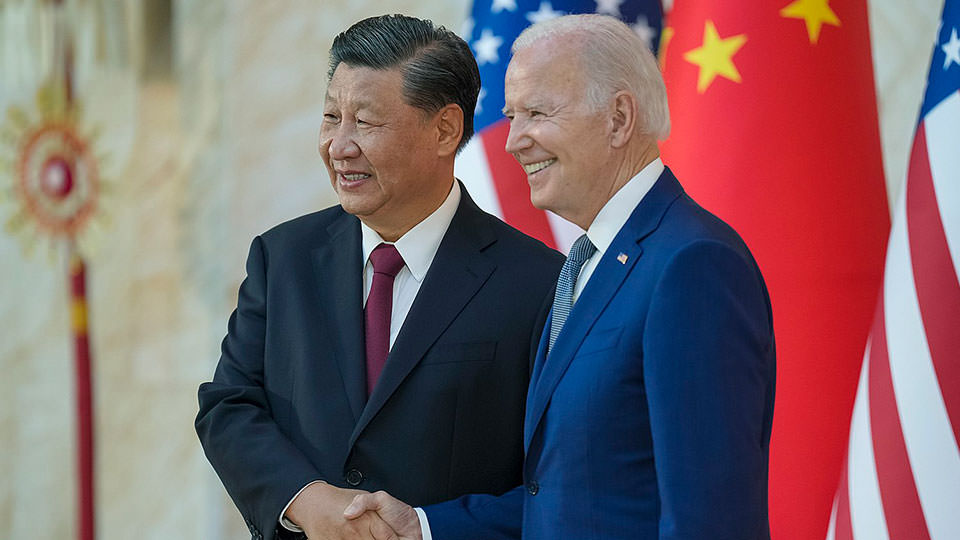World
‘Incredibly Poor Decision’: Biden Hands China Big Win With Military Deal
By CM Chaney · November 21, 2023
In brief…
- Biden and Xi to sign deal restricting AI in nuclear weapons at summit
- Aims to limit autonomous tech in launch systems and drones
- Some experts criticize pact as ceding edge to China
- Others question if China will actually adhere to agreement
- Reflects growing unease over unfettered AI use in warfare

President Biden is expected to strike an agreement with Chinese President Xi Jinping to limit the use of artificial intelligence (AI) in nuclear weapons systems. The leaders plan to formalize the deal at the Asia-Pacific Economic Cooperation (APEC) summit on Wednesday.
According to reports, the pact would restrict AI applications in nuclear launch systems and autonomous weapons like drones. It comes amid ongoing tensions between the U.S. and China over issues like espionage and militarization, even as ethical concerns grow over unregulated AI in warfare.
Phil Siegel, founder of threat simulation group CAPTRS, called such an agreement “necessary,” arguing that major powers like Russia should join as well: “I predict they will make a deal on AI-driven autonomous weapons on the battlefield should only be for reconnaissance and not fighting; otherwise, the world will become a very dangerous place.”
But some experts questioned the wisdom of limiting U.S. capabilities.
“This is an incredibly poor decision,” Christopher Alexander, an analytics officer, told Fox News Digital. “To begin with, China lags behind the U.S. in AI capabilities; so the Biden administration just ceded a strategic advantage. Additionally, AI helps reduce stress to improve decision-making, which is crucial in preventing a poor decision to release nuclear weapons.”
Samuel Mangold-Lenett of The Federalist was also skeptical, citing China’s spotty adherence to past deals.
“It is foolish to believe China will honor any agreement limiting the use of AI in nuclear weapons. Look at the Paris Climate Agreement: despite agreeing to reduce carbon emissions, China continued to be one of the world’s worst polluters. It similarly has no regard for human rights or intellectual property,” Mangold-Lenett told Fox News Digital.
“Chinese leadership has no regard for agreements that could slow down its quest for destabilizing the world order and displacing the U.S. as hegemon. The U.S. should continue developing AI systems that ensure national security and advance our interests — our enemies will surely do the same.”
Both nations have been racing to integrate AI into their militaries. However, the risks of uncontrolled AI applications have apparently inspired this attempt at restraint. The two sides agreed earlier this year to promote responsible AI use in defense systems.